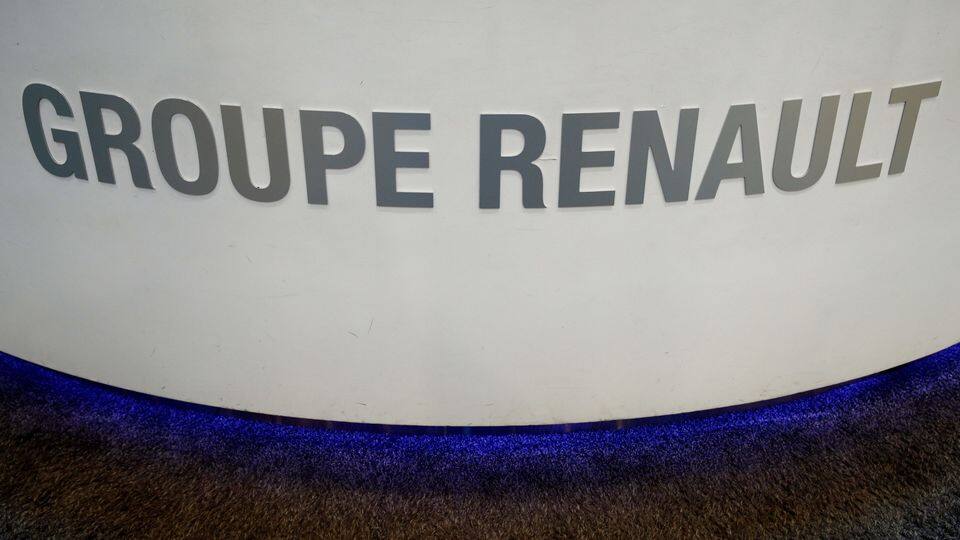
For the sake of competitiveness in the Indian market, French vehicle manufacturer Renault SA and its Japanese counterpart Nissan Motor Company will maintain their alliance here, notwithstanding the ongoing tensions between the global parents, said Fabrice Cambolive, senior vice president, Africa, Middle-East, India and Asia Pacific region at Renault.
The tensions between the two companies led to the ouster of Carlos Ghosn, former chairman of both companies, but this has not impacted the Indian operations adversely, he added.
A key focus for Renault in India will be working towards an affordable electric vehicle by 2022, which will be unlike other global and domestic car makers that are introducing electric vehicles in India with imported components.
Instead the vehicle platform it is looking at is probably going to be the same as mini hatchback Kwid, which will help create an ecosystem for its components, he said. The company will also export components for such eco-friendly vehicles from India to improve sustainability of the project.
“We are producing in the same plant and sharing the same engineering workforce in Chennai and are still working on new products, developed on the same platform. That means till now all those changes at the level of execution of operations in India did not have any consequences because we went on working with the alliance spirit which is compulsory in India. If we have to be competitive in India then we have to share our plant and so on,” added Camboliv.
Renault Nissan and Mitsubishi alliance, which is the world’s fourth-largest vehicle manufacturer, has been going through a difficult period, both financially and operationally, ever since former chairman Carlos Ghosn was arrested by law enforcing authorities in Japan for using Nissan’s resources for personal gain.
The arrest kicked of a period of instability in Nissan as it witnessed frequent changes in the top management and also reported a loss of 26.1 billion yen for the October and December quarter, highest ever since fourth quarter of 2009.
“At my level, I didn’t see any change but I hope now with the new organization, sprit and process enhanced by our chief executive we will be able to reinforce the sprit to prepare for the future and by 2024 – 2025, we will announce the arrival of our new platform.”
As vehicle sales in the domestic market has remained subdued due to the slowdown in the economy and increase in vehicle prices due to introduction of new regulations, like emission and safety norms, Renault has managed to stage a recovery on the back of its new offering Triber and new variant of its mini hatchback, Kwid.
As most of the foreign vehicle manufacturers are focusing on introducing electric vehicles in India the French company is not planning to launch a product in the segment in a completely built or semi knocked down form. On the contrary, it is working on introducing electric powertrain in one of its existing vehicles in the mass market segment.
“We want to build our EV growth on existing line up and if there is one model that is compatible it is the Kwid, and it is a familiar product in India and we have the experience in China. We will work on this project,” said Camboliv. In order to do that the company needs to answer the demand and purchasing power of the Indian customers. That means Renault to work on localization and have to be secured in terms of free trade agreement (with other countries) regarding those components, he added.
In 2018, at the Paris Motor Show, the company unveiled a hatchback electric vehicle for the Chinese market and same product can make it to India in 2022. Though domestic and foreign car makers like Mahindra and Mahindra Ltd, Tata Motors Ltd, Hyundai Motor India Ltd and M G Motor India Ltd have launched their respective electric vehicles in India, market leader Maruti Suzuki is taken its step off electric vehicles as the technology is not compatible for affordable products.
“Two years ago if you remember there was a lot of announcement regarding electric vehicles (at the Auto Expo) but how many of those vehicles been sold in India after two years? (All) We could say is that we could bring a built-up vehicle and sell some units but that’s not our strategy. We want to come but it will still take a little time which will be around 2022,” added Camboliv.
In 2020, Both Renault and Nissan are expected to launch in a compact sport utility vehicle based on a common platform.